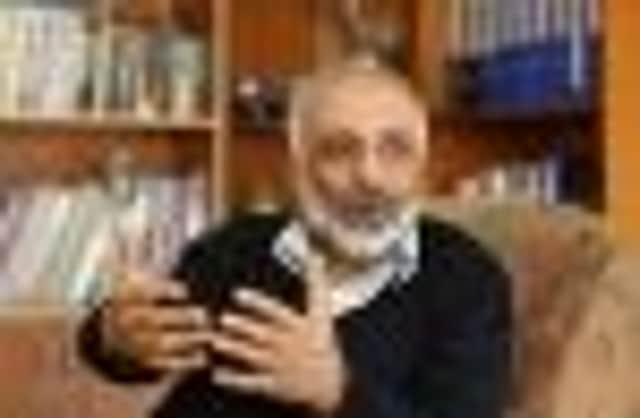Taleban will negotiate for peace, says Afghan official


Mohammad Masoom Stanekzai also said that the Kabul government hoped to transform the Afghan Taleban, who have proved resilient after more than a decade of war against Nato and Afghan troops, into a political movement.
He predicted that the highly lethal Haqqani militant network, the most experienced at guerrilla warfare, would join the peace process if the Afghan Taleban started formal talks.
Advertisement
Hide AdAdvertisement
Hide AdSigns are emerging that the Afghan government is gaining momentum in its drive to persuade the Taleban to lay down their arms before most Nato combat troops pull out by the end of 2014, a timeline that makes many Afghans nervous.
Members of the Afghan government, the Taleban and some of their old enemies in the Northern Alliance, which fought the Taleban for years, discussed ways of easing the conflict during a recent meeting in France.
“I think one consensus was that everybody acknowledged that nobody will win by military [means],” said Mr Stanekzai.
“Everybody acknowledged that we have to enter into a meaningful negotiation.”
Pakistan, long accused of supporting Afghan insurgents such as the Taleban, has recently sent the strongest signals yet that it will deliver on promises of helping the Kabul government and the United States bring stability to its neighbour.
On Monday, Pakistan freed four Afghan Taleban prisoners who Afghan officials said were close to the group’s reclusive leader, Mullah Mohammed Omar, and still had the influence to persuade commanders to pursue peace.
Ismail Qasemyar, another senior member of the Afghan High Peace Council, yesterday called their freeing a “good, practical” step in the peace process.
Mr Stanekzai said: “The purpose of the peace process is we want all Afghans to be part of the political system.
Advertisement
Hide AdAdvertisement
Hide Ad“This peace process should not just be a deal between a few people or between the government and the Taleban, but everybody should benefit.”
But some activists fear that the government will make concessions in order to pacify the Taleban that could hurt efforts to improve women’s rights.
Mr Stanekzai – who studied at Cambridge – said Afghan security forces had made progress but acknowledged that more work was needed to ensure they would be ready to take over when the Nato-led combat mission ends in 2014.
He also believes a free and fair presidential election in April 2014 is essential to prevent conflict. The last vote was plagued by fraud allegations.
Asked if he thought there would be a major breakthrough in peace efforts this year, Mr Stanekzai said conditions had been established to make that possible. But he noted that Afghanistan was highly unpredictable: “Anything can happen. You don’t know which direction these different actors will take.”
Mr Stanekzai knows that first hand. He recalled how, in 2011, a man posing as a Taleban peace envoy kissed the hand of former Afghan president and chairman of the High Peace Council, Burhanuddin Rabbani, before detonating a bomb hidden in his turban. Mr Rabbani was killed instantly and Mr Stanekzai was badly wounded – he says his faith helped save him.
He recalled: “The suicide bomber was between the both of us and when he lowered his head, I remember there was a light and a bang and that was the last thing I remember. Next thing I remember was I was in the hospital.
“In Islam … it says even if you are in the middle of fire, Allah can save you.”